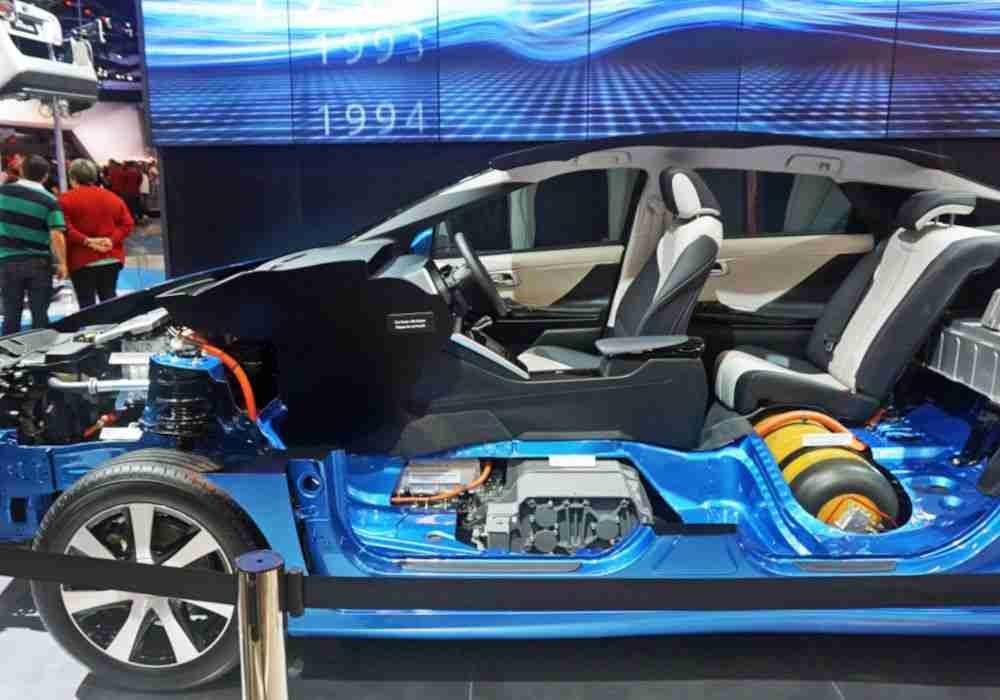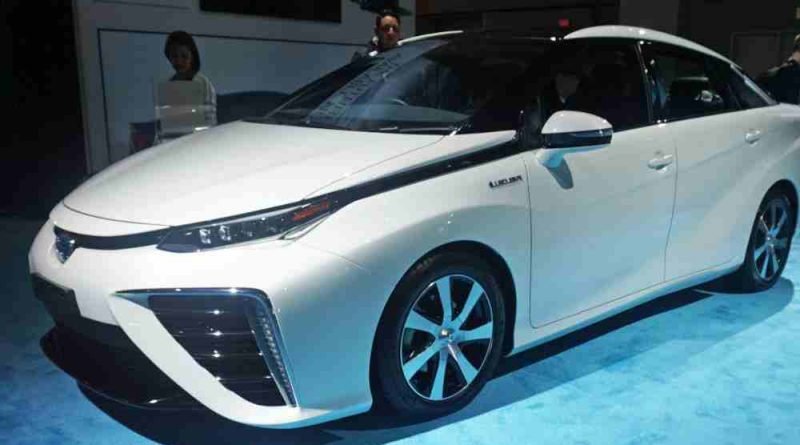Hydrogen Car | Fuel Cell Vehicles
In the world of technology and innovations, it is important to focus on sustainable transportation and alternative fuels. As the climate change and increasing the greenhouse gases, engineers and researchers have been exploring the environment friendly cleaner technologies and alternative of fuels for transportation.
Hydrogen cars are one of the most innovative and promising development in the automotive industry. The hydrogen vehicles play an important role in the modern and cleaner innovation and cleaner fuel alternative for transportation.
What is Hydrogen Car?
Hydrogen Cars are similar to electric cars, in an electric vehicle an electric motor is use instead of internal combustion engine while in hydrogen cars, a hydrogen (H2) gas from the fuel tank of the car which is combined with oxygen (O2) from the air to generate electricity.
A hydrogen car is also known as fuel cell vehicle (FCV) which operates on hydrogen gas as its primary source of fuel. In traditional internal combustion engines that burn gasoline, petrol and diesel as a main fuel source whereas, hydrogen vehicles use fuel cells to convert hydrogen gases into oxygen that converts into electricity to operate the vehicles.
Hydrogen cars are zero-emission Hydrogen cars are zero-emission vehicles and an environmentally friendly as it only emission is pure water vapor which form as the hydrogen gases converts into oxygen to generate electricity to operate battery and run the vehicle. Hydrogen cars are one of the best alternatives to fossil fuel powered cars.
Working of Hydrogen Cars:
Hydrogen cars are the vehicles that uses hydrogen fuel for motive power and run the vehicle Hydrogen fuel cells uses hydrogen and oxygen that create electricity that powers an electric motor.
Hydrogen fuel cell cars powered by compressed hydrogen that feeds into an onboard fuel cell stack that not burn gas, but transforms the fuel’s chemical energy into electrical energy. The electrical energy powers the vehicles electric motors to run the vehicle.
Hydrogen fuel cells are made through REOX, a reduction/oxidation reaction between hydrogen and oxygen. This process directly converts chemical energy into electricity using hydrogen as a fuel combining with oxygen from the air to create an electrochemical cell. The end result of this process is emission of electricity and water vapor.

The key components of hydrogen powered fuel are as follows,
Fuel Cell Stack: The fuel cell stack in the hydrogen car is used to combine the hydrogen can oxygen to generate electricity and power the electric motor.
Fuel Tank: A hydrogen is used to stored in a fuel tank to provide furl to the fuel cell stack.
Electric Motor: An electric motor is used to power the car using the energy produced in the fuel cell stack.
Battery: The battery is used to provides an additional power to the electric motor.
Exhaust: The exhaust is used to emit the water vapor which is emitted through the exhaust.
Advantages of Hydrogen Cars:
Here are some of the main advantages of hydrogen cars are as follows,
Zero Emission: The hydrogen cars can emit only water vapor, significantly reducing the greenhouse gas emission and contributing to improve the air quality. The reducing greenhouse emission make hydrogen cars environmentally friendly.
Energy Independent: Hydrogen is the primary sources as a fuel in hydrogen cars. Hydrogen can produce from various sources such as water electrolysis and renewable energy sources.
Fast Refueling: A hydrogen cars also takes the same amount of time as gasoline powered vehicles takes time for fueling. The battery-operated electric cars take hours to charge their electric battery, but hydrogen cars take less time.
Long Range: The hydrogen cars are able to run long range and can be able to travel 300 to 400 miles after fueling.
Disadvantages of Hydrogen Cars:
Here are some of the disadvantages of hydrogen cars are as follows,
High Cost of Production: The production cost of a hydrogen cars is way more than the production cost of battery electric cars.
Lack of Access: The infrastructure for production of hydrogen cars is the biggest challenge and the most important to install hydrogen refueling stations throughout the world.
Limited Options: Customers have only limited options to purchase a hydrogen car. Only few of the large automobile manufacturers such as Toyota, Hyundai, Mercedes and Honda invested in the manufacturing of hydrogen cars.
Future of Hydrogen Cars:
The future of hydrogen cars will grow as automobile makers and government of various countries recognize their potential and the importance of hydrogen as an alternative fuel. Many leading automotive companies already introduced their hydrogen powered vehicles. As of 2021, there are two models of hydrogen cars are publicly available such as, the Toyota Mirai (2014) which was the first fuel-cell vehicle and Hyundai Nexo (2018). The manufacturers also launched hydrogen powered buses.
Governments of different countries will also be offering incentives and investing in research and infrastructure to promote hydrogen vehicles adaptation.
Hydrogen cars have so much potential to make a revolution in an automobile and transportation industry. As the technology advances, the hydrogen cars will also be upgrading their working principle and growing the adaptation of hydrogen cars in future.





